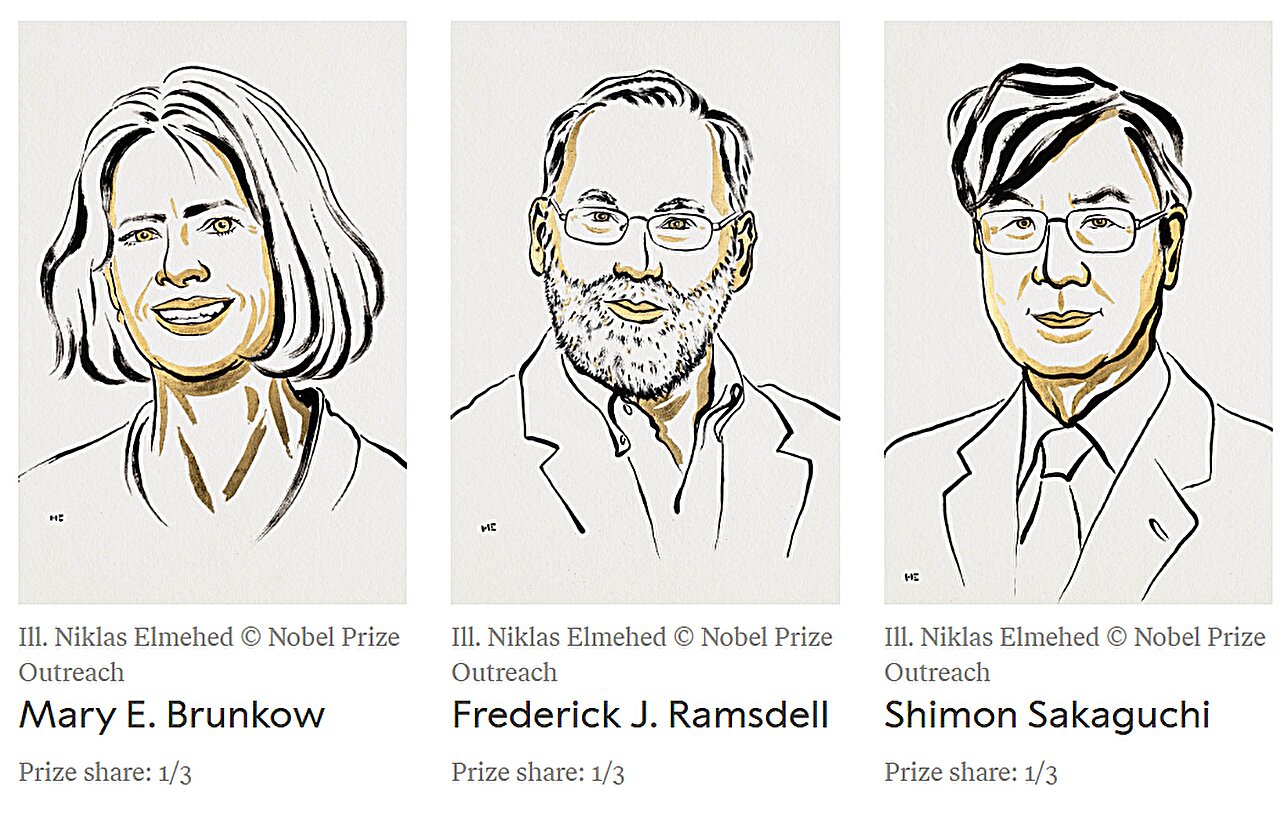Honoring breakthroughs in immune system regulation
Mary E. Brunkow, Fred Ramsdell, and Shimon Sakaguchi have been awarded the 2025 Nobel Prize in Medicine for their research on peripheral immune tolerance, a vital process that prevents the immune system from attacking the body’s own tissues.
Brunkow, 64, is a senior program manager at the Institute for Systems Biology in Seattle; Ramsdell, 64, serves as a scientific adviser for Sonoma Biotherapeutics in San Francisco; and Sakaguchi, 74, is a distinguished professor at the Immunology Frontier Research Center at Osaka University in Japan.
Pioneering discoveries that reshaped immunology
The immune system is designed to identify and neutralize harmful pathogens such as bacteria and viruses. However, when certain T cells—immune cells responsible for orchestrating defense responses—malfunction, they can trigger autoimmune diseases. Traditionally, a process called central tolerance was known to eliminate these defective cells in the thymus.
In 1995, Sakaguchi discovered a previously unknown subtype of T cells, now called regulatory T cells (T-regs), that serve as an additional checkpoint in the immune system. Later, in 2001, Brunkow and Ramsdell identified a mutation in the Foxp3 gene, linked to a rare autoimmune disorder in humans.
Two years after, Sakaguchi demonstrated that Foxp3 is responsible for the development of T-regs, which act as key regulators preventing excessive immune responses.
Global impact and future research
These findings opened a new field of immunological research and have inspired the development of therapies aiming to harness regulatory T cells to treat autoimmune diseases and cancer.
The Nobel Committee highlighted that the discoveries made by Brunkow, Ramsdell, and Sakaguchi have been crucial in understanding how the body maintains immune balance and avoids severe autoimmune conditions. The award ceremony will take place on December 10, the anniversary of Alfred Nobel’s death.



